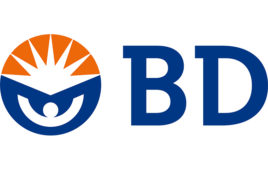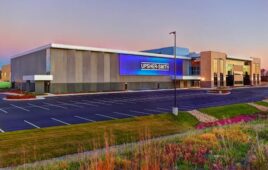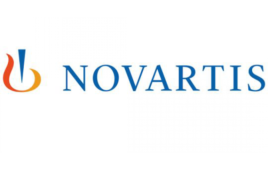The official start to summer is just around the corner and with it comes increased temperatures and higher humidity. The need to manage and monitor temperatures and humidity regardless of the time of year is particularly great within the pharmaceutical industry. According to Pharmaceutical Commerce’s annual Biopharma Cold Chain Sourcebook, the cost to manage temperature-controlled products transportation, including storage and handling, is estimated to be $12.6 billion. By 2020, this is expected to grow to $16.7 billion. Furthermore, according to 2014 industry estimates, seven out of ten of the top pharmaceutical products required temperature-controlled transportation.
The growing number of biopharmaceuticals, the globalization of the pharmaceutical supply chain, and tightening regulatory requirements have all contributed to the need for specialized solutions that require careful planning and monitoring on behalf of the shipper and the carrier. The planning not only includes storage and transportation options, but also packaging consideration. To maintain compliance with government regulatory requirements, constant monitoring is necessary and includes maintaining and keeping accurate temperature logs throughout the storage and transport of pharmaceuticals.
Despite careful planning, problems can occur at any point in the supply chain. Issues arise, such as lack of visibility, delays in loading pharmaceuticals across all modes of transportation, as well as supply chain partners simply not understanding the intricacy of the pharmaceutical industry and regulatory environment. To achieve success, supply chain partners must collaborate in each step of the process and make sure there is a robust standard operating procedure.
A growing number of third-party logistics providers (3PLs) offer unique solutions to address temperature-control transportation. For example, DHL offers a selection of solutions such as Thermonet, a standard air freight solution that provides monitoring and visibility while goods are in-flight, as well as LifeConex, a premium international air freight solution that further provides analytics, network design and optimization. In addition, DHL also offers European road freight and ocean freight cold chain solutions.
DHL is certainly not alone. UPS also offers temperature-controlled services including UPS Proactive Response. They also offer 49 healthcare-dedicated facilities around the world for a total of 7 million square feet of cGMP-compliant, dedicated healthcare distribution space in addition to providing temperature-controlled transportation services. Similar to DHL solutions, the UPS offering provides monitoring and dedicated logistics experts who continuously observe critical shipments and take action when needed. In addition, FedEx Priority Alert provides around-the-clock support, monitoring, and personalized notification in the event of a delay and when necessary, customized package recovery. FedEx will continue to expand its offerings with its TNT Express acquisition. TNT Express’ unique clinical trial solution will be a strong addition to FedEx’s already solid offerings.
Non/light-asset based 3PLs such as Expeditors International of Washington, CEVA Logistics, and Panalpina also offer solutions by establishing relationships with warehouse and transportation providers.
Additionally, start-up companies are entering the market. CargoSense specializes in analytics, and monitors temperature as well as humidity, light, and over 20 more sensor points. It works with Toshiba Semiconductor and utilizes rechargeable sensors that can be combined with other sensors that shippers may require. The sensors in turn allow CargoSense to collect and analyze all of the shipment data from origin to destination, evaluate data, and share the analysis with all supply chain partners involved in a particular shipment. Based on its analysis, CargoSense has found that 90 percent of temperature-controlled problems happen on the tarmac.
While transportation is certainly important, so is the packaging. Specialized containers from companies like Envirotainer and CSafe allow shippers and transportation providers to lease specific types of containers depending on the required temperature range and size. Envirotainer also provides a certification process for transport providers that includes the pick-up, handling and drop-off of containers. Its partnerships include airlines such as Air Canada, Lufthansa Cargo, and Malaysian Airlines, in addition to freight forwarding partners including Panalpina, CEVA, and DB Schenker. Even some 3PLs, for example UPS, offer their own containers. UPS’ PharmaPort 360 container is manufactured by Cool Containers for UPS Temperature True air freight.
Besides containers, thermal blankets can be utilized for pallets during air transit. FedEx’s offering, for example, provides a thermal blanket that maintains a constant temperature range of 15°C to 25°C (+/- 5°C) for pallets of freight and also provides insulation protection against direct sunlight, rain, humidity, and tarmac heat. To meet the growing need for frozen shipping services, earlier this year UPS introduced its Cryogenic shipping to its European portfolio.
Lastly, for smaller deliveries, specialized packaging is available from logistics and transportation providers. UPS’ Temperature True options offers not only storage and transportation services, but also packaging services for products ranging from cryogenic to ambient.
As one can tell, there are a lot of options for handling temperature-controlled products. No matter what season it is, collaborating with all supply chain partners and creating a detailed standard operating procedure is very important. Additionally, watching costs is vital because they can add up fast. Moving regulated and high-valued goods such as pharmaceuticals is expensive, but costs can be managed with the increasing number of options available. Good planning and supply chain partners are the key to success.
About the Author
Paul Steiner is the vice president of strategic analysis with Spend Management Experts, a leading transportation spend management consultancy that helps companies optimize their supply chains. Previously an executive with UPS, Paul Steiner spearheaded the creation of the UPS Healthcare Center of Excellence responsible for developing new products and services for the healthcare sector.




